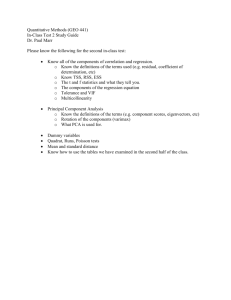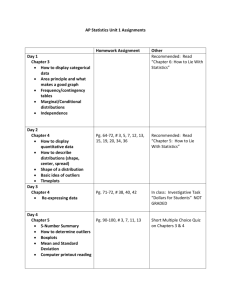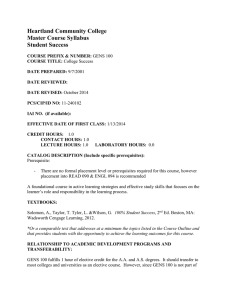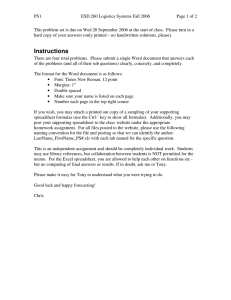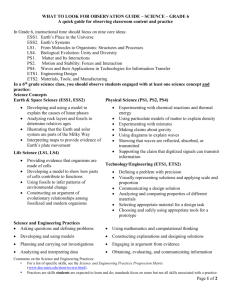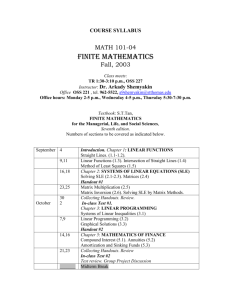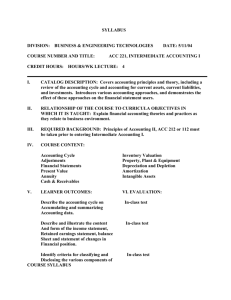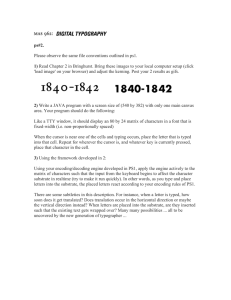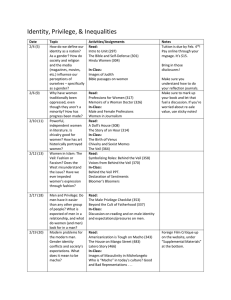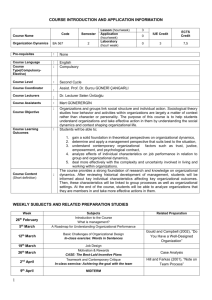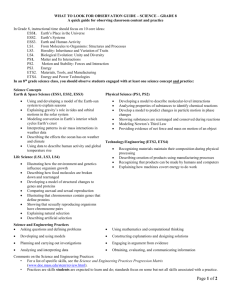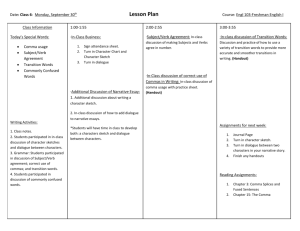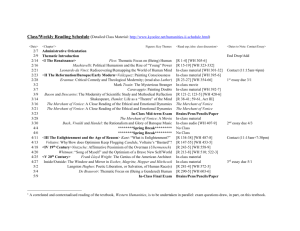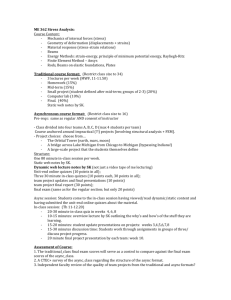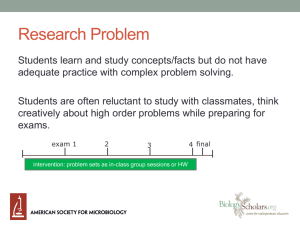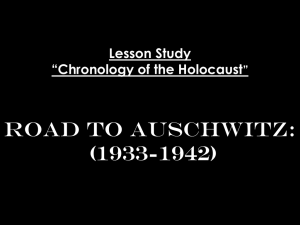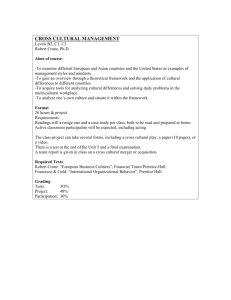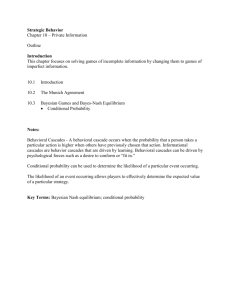Slides
advertisement
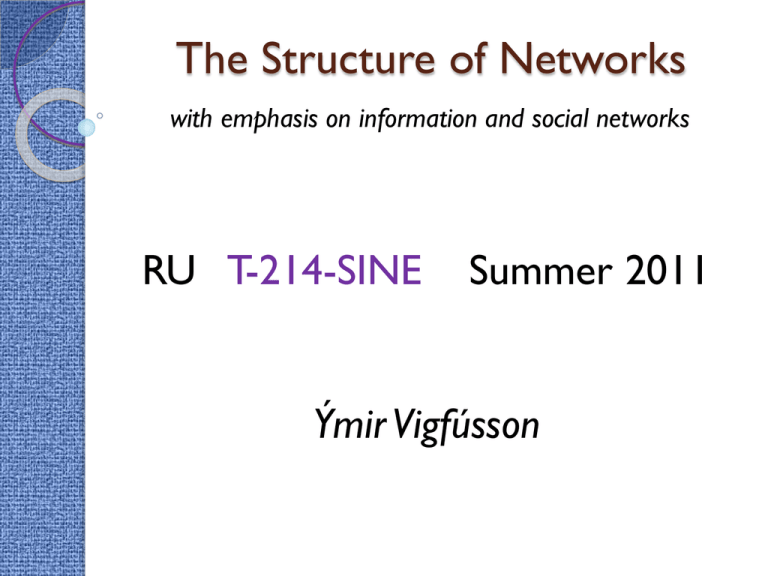
The Structure of Networks with emphasis on information and social networks RU T-214-SINE Summer 2011 Ýmir Vigfússon Logistics (1/2) The course will be taught in English Weekdays 16:35-18:10 from 4/7-12/8 ◦ Fridays reserved to be recitation sections Office hours: Monday 12:00-13:00, V.3.06 ◦ Or by appointment (e-mail me) Prerequisites ◦ Discrete Mathematics (or comparable background) ◦ Inherent curiosity, thirst for knowledge and challenges Logistics (2/2) Course material ◦ Networks, Crowds and Markets (Easley, Kleinberg 2010). Also available online! ◦ Supplementary slides/documents/demos on MySchool ◦ Lectures will be recorded and posted online. Collaboration advised and encouraged! ◦ Final exam closed book ◦ You are expected to maintain academic integrity according to RU regulations Evaluation Homework assignments (50%) ◦ Two problem sets (10%, 15%) Mostly questions from the book Fully understand and critically evaluate a real scientific paper ◦ Large group project (25%) Evaluate a real data set, try to advance the state of the art! Progress report required and a final presentation Final exam (40%) ◦ 90 minute closed-book in-class exam on 12/8. In-class participation (10%) ◦ You should be asking questions and making the experience interactive. ◦ Remote students should participate via threads (or Skype) Food for thought The book is awesome ◦ We will read most of it ◦ That‘s a lot of pages, be sure to read as you go! You can push the envelope ◦ Do you have access to cool network data? Why not turning that into a project? The field is young and emerging ◦ Tons of opportunities for high impact projects ◦ I am always looking for talented students – let‘s talk if you have interesting ideas! ◦ Exciting group projects could be further developed to become publications! Networks are everywhere Modern society is “connected“ in different ways ◦ ◦ ◦ ◦ ◦ Global communication The Internet Social networks Financial systems News and media Network science ◦ “The study of phenomena that take place within complex social, economic and technological systems.“ Network science – examples 34 person Karate club ◦ Nodes are people, edges are friendship Network science - examples E-mail communication patterns within HP ◦ Superimposed on the company hierarchy ◦ 436 employees Network science - examples Loans among financial institutions ◦ Which institutions are powerful? Questions we will explore What are the structural features of networks? ◦ Hard to eyeball features of large networks Can we reason about behavior and interaction in networks? ◦ Strategic incentives, cause-and-effect relationships What are the dynamics of aggregate behavior? ◦ Why are YouTube and Facebook so popular? ◦ How do things go viral? Our plan of attack (1/2) Week 1: 4/7-8/7 [ch 1-3,5] ◦ Intro. Basic graph theory. Theory of weak ties. ◦ 4/7: PS1 (done in pairs) out. Week 2: 11/7-15/7 [ch 6-8,9] ◦ Structural balance. Game theory. (Auctions) ◦ 11/7: Group project out (teams of 4) ◦ 15/7: PS1 due Week 3: 18/7-22/7 [ch 13-15] ◦ The Web. PageRank. Sponsorsed search markets. ◦ 18/7: PS2 (done in different pairs) out. Our plan of attack (2/2) Week 4: 25/7-29/7 [ch 16-18] ◦ Cascades. Network effects. Power laws. ◦ 27/7: PS2 due. ◦ 27/7-1/8: Ýmir away (more info later) Week 5: 1/8-5/8 [ch 19-21] ◦ Network cascades. Small world effect. Epidemics. ◦ 2/8: Group progress report due (1 page) Week 6: 8/8-12/8 [ch 22,23,24] ◦ Voting theory. (Markets). ◦ 10/8: Group project presentations (20 min) ◦ 12/8: Final exam in-class (individual). Six degrees of Kevin Bacon A movie to tantalize your taste buds Gives an idea about the types of problems network scientists work on Key concepts ◦ ◦ ◦ ◦ Six degrees of separation Degree distributions Power laws Epidemics over networks


